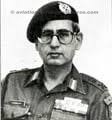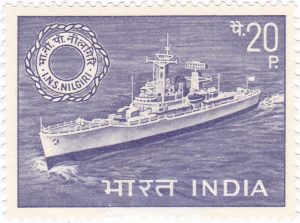
By Lt Gen AS Kalkat, SYSM, PVSM, AVSM, VSM (Retd.)
New Delhi. 10 May 2020. OP PAWAN (IPKF) is the story of the Indo Sri Lanka Accord of 1987. IPKF was created by this Accord; which India had actually coerced Sri Lanka into signing to get the political demands of the 18% Lankan Tamil minority community from the Sri Lanka Govt. Sri Lanka with 74% Sinhalese population had effectively become a theocratic Buddhist State.
The Accord committed Sri Lanka Govt to merge its Northern & Eastern Provinces comprising 17,000 sq km out of the total 51,000 sq km of Sri Lanka. These two Provinces had Tamil in majority & were very fertile. Thereafter the new North Eastern Province was to be devolved power by changing the political structure of Sri Lanka from its Westminster model to a Federal structure. The Accord was hailed as a master-stroke of Indian diplomacy.
India was required to make available military force to keep the peace while the Accord was implemented, hence creation of Indian Peace Keeping Force (IPKF). This was incongruous because a civil war was raging between Tamils and Sinhalese supported by Govt forces; there was no peace. Consequently the immediate task of IPKF became to conduct military operations to achieve peace & security for all communities & ultimately to enable conduct of elections in the two Provinces which was a pre-requisite for their merger.
The impracticable nature of the Accord is obvious from the demography, forcing Sri Lanka to give the minority Tamils (1/5th population), 1/3rd of total area of the country and that too the most fertile part. It was doomed to fail.
While the political dealings & spins were dealt by MEA, IPKF carried out the process of creating a secure environment for carrying out elections in the Northern & Eastern Provinces at a cost of over 1200 soldiers. The provincial elections were the pre-requisite for merger of the two provinces. On 10 Dec 1988 the dult elected Chief Minister of North Eastern Provinces was sworn in by the President of Sri Lanka the same day I intimated the Indian Govt that ‘Mission Accomplished, await further instructions’.
At this stage there was a twist to the tale. The Foreign Ministry failed to obtain the political dispensation for North Eastern Province from the Sri Lanka Govt. Seeing the failure of the Accord, Indian Govt passed on the ‘baby’ to IPKF, ordering it to continue & help the Provincial Govt ‘establish firm roots’. (As an aside; I advised New Delhi that I am not an agriculturist).
In securing the Accord MEA had had overlooked the first principle of Intervention in Civil unrests: most conflicts have a political dynamic and ultimately require a political resolution. Only the government of a country can give political dispensation to its citizens not an Outside Power. Therefore, before intervening in such conflicts the intervening country must ensure that this is guaranteed by the host government. If the host government reneges its commitment the only alternative left would be to resort to ‘regime change’.
The famous German Chancellor Bismarck had a board fixed above his desk which read ‘Most people learn by experience, I learn by others experience’. Regrettably, great countries have disregarded it. Afghanistan & Iraq are contemporary examples.
EPILOGUE
- The Indian Foreign Secretary was summarily dismissed.
- PM of India was assassinated.
- China today owns and runs the Colombo Port City. A legacy of ‘Coalition Dharma Politics’.
Lt Gen AS Kalkat, SYSM, PVSM, AVSM, VSM (Retd) was GOC IPKF. As an army officer he has participated in many forward area operations and has seen action in the Indo-Pak wars of 1965 and 1971 and was former Director Emeritus CENJOWS. The views in the article are his. He can be contacted at editor.adu@gmail.com.





























































































































